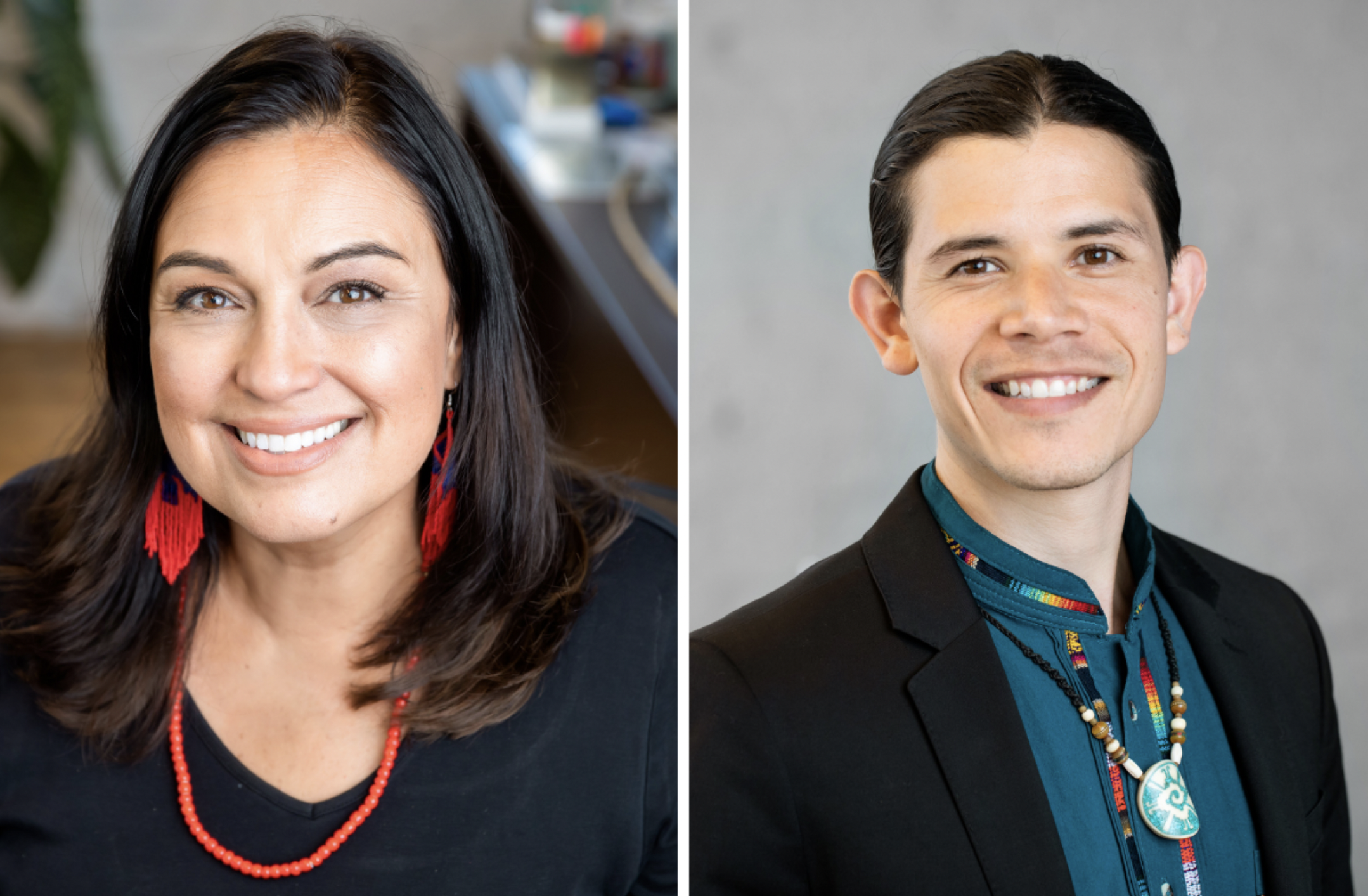
- Details
- By Jenna Kunze
The group at the helm of the Indian Boarding School reckoning movement—the Native American Boarding School Healing Coalition (NABS)—announced new leadership last week.
Christine Diindiisi McCleave (Turtle Mountain Ojibwe) left her role as Chief Executive Officer of six years to pursue a PhD in Indigenous Studies at the University of Alaska Fairbanks.
Deborah Parker (Tulalip Tribes) is the organization’s new CEO.
Sam Torres (Mexica/Nahua), NABS’s former educational and programming lead, is now Deputy Chief Executive Officer.
Want more Native News? Get the free daily newsletter today.
Parker comes to NABS with more than 20 years of work on reckoning with the history of boarding schools, including serving as the executive director of Residential School Healing in British Columbia, Canada, according to the agency’s press release.
She also helped guide the passage of the Violence Against Women Act in 2013, and recently met with Interior Secretary Deb Haaland to advocate for legislation that would create a congressional truth and healing commission on boarding schools in the United States.
“Moving forward, I see this as a truly transformative time in the healing movement for boarding school survivors and descendants,” said NABS’ Board of Directors president, Sandy White Hawk in a statement. “We are inspired by our new executive leadership and incredible staff to bring about truth, justice, and healing, and look forward to engaging and being in community with you on this journey.”
Neither Parker nor Torres were available to comment before press time.
Last month, the Department of the Interior brought NABS into its Federal Indian Boarding School Initiative when it asked them to share their nearly ten years of historical research with the department for its boarding school report due this April.
McCleave told Native News Online that she doesn’t expect her transition to impact the team’s work moving forward.
“I definitely have every confidence in the leadership and the staff to continue this good work,” she said. As for the April report, McCleave said she expects it to be on time, but not comprehensive.
“There's no way they can analyze the records of 367 boarding schools in nine months,” she said. “So I always knew that the report would be preliminary. I think they'll still have something in April, but I always thought that the report was going to say ‘more research is needed.’ I still think that’s the case.”
This story has been updated to reflect NABS communication.
More Stories Like This
Native News Weekly (August 25, 2024): D.C. BriefsUS Presidents in Their Own Words Concerning American Indians
Monday Morning (December 1, 2025): Articles You May Have Missed This Past Weekend
Native News Weekly (November 30, 2025): D.C. Briefs
Indigenous Actor Elaine Miles Reports Detention by Alleged ICE Agents
Help us tell the stories that could save Native languages and food traditions
At a critical moment for Indian Country, Native News Online is embarking on our most ambitious reporting project yet: "Cultivating Culture," a three-year investigation into two forces shaping Native community survival—food sovereignty and language revitalization.
The devastating impact of COVID-19 accelerated the loss of Native elders and with them, irreplaceable cultural knowledge. Yet across tribal communities, innovative leaders are fighting back, reclaiming traditional food systems and breathing new life into Native languages. These aren't just cultural preservation efforts—they're powerful pathways to community health, healing, and resilience.
Our dedicated reporting team will spend three years documenting these stories through on-the-ground reporting in 18 tribal communities, producing over 200 in-depth stories, 18 podcast episodes, and multimedia content that amplifies Indigenous voices. We'll show policymakers, funders, and allies how cultural restoration directly impacts physical and mental wellness while celebrating successful models of sovereignty and self-determination.
This isn't corporate media parachuting into Indian Country for a quick story. This is sustained, relationship-based journalism by Native reporters who understand these communities. It's "Warrior Journalism"—fearless reporting that serves the 5.5 million readers who depend on us for news that mainstream media often ignores.
We need your help right now. While we've secured partial funding, we're still $450,000 short of our three-year budget. Our immediate goal is $25,000 this month to keep this critical work moving forward—funding reporter salaries, travel to remote communities, photography, and the deep reporting these stories deserve.
Every dollar directly supports Indigenous journalists telling Indigenous stories. Whether it's $5 or $50, your contribution ensures these vital narratives of resilience, innovation, and hope don't disappear into silence.
 The stakes couldn't be higher. Native languages are being lost at an alarming rate. Food insecurity plagues many tribal communities. But solutions are emerging, and these stories need to be told.
The stakes couldn't be higher. Native languages are being lost at an alarming rate. Food insecurity plagues many tribal communities. But solutions are emerging, and these stories need to be told.
Support independent Native journalism. Fund the stories that matter.
Levi Rickert (Potawatomi), Editor & Publisher

